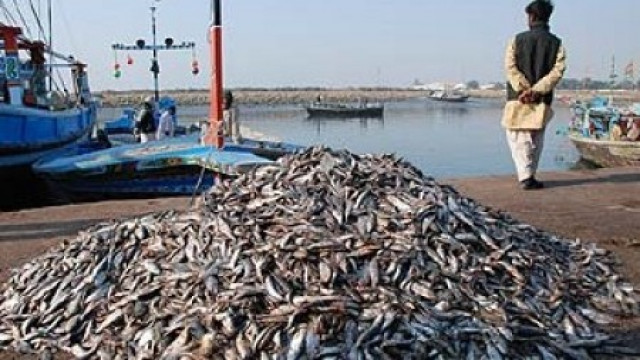Islamabad:
Experts have emphasized the urgent need to recognize and take advantage of the non -exploit potential of marine and internal fishing and aquaculture to promote food security, reduce poverty and boost sustainable economic growth.
They were talking in a workshop on Wednesday, organized by the Ministry of Maritime Affairs with the technical support of the Food and Agriculture Organization (FAO), and focused on shaping the National Policies of Fishing and Aquaculture 2025-2035.
When heading to the event, the Federal Minister of Maritime Affairs, Muhammad Junaid, Anwar Chaudhry, said that despite the rich marine and internal resources of the interior of Pakistan, the fishing sector and aquaculture has remained for a long time developed and underutilized. He pointed out that the sector currently contributes less than 0.5% to the Gross Domestic Product (GDP) and captures a limited value of national and export markets. The minister emphasized that one of the key priorities of the new policy is to promote federal-propial harmonization, and added that the Ministry of Maritime Affairs will continue to lead critical national issues, including the satisfaction of international obligations and the improvement of seafood exports.
Politics also focuses on transverse priorities such as climatic resilience, environmental protection, child safety, gender inclusion, labor rights and the adoption of modern technologies.
The minister described the policy as a fundamental and evolving framework whose success depends on the sustained commitment, the effective coordination and active participation of all interested parties. He said that politics represents an important milestone not only for the ministry, but also for all institutions, communities and interested parties committed to the future of Pakistan’s blue economy.
The Secretary of Maritime Affairs, Syed Zaffar Ali Shah, declared that despite the long coast of Pakistan, the fishing sector has not yet reached its potential. “It is still a vital source of livelihood, but faces serious problems such as overfishing and bad regulation.” He pointed out that the recently introduced national policy aims to resolve these challenges through coordinated planning. With better management and additional value, the sector can generate up to $ 10 billion.
The FAO representative, Florence Rolle, emphasized the need for strong coordination between provincial and federal governments and in all sectors. He stressed that inclusive seminars were carried out throughout the country to help shape politics. The animal parenting commissioner of the Ministry of Food, Dr. Syed Murtaza Hassan Andrabi, emphasized that the final policy must be ambitious and feasible. He stressed the importance of the participation of the interested parties, especially because fisheries are often careless and highly sensitive to climate. The policy, he added, must reflect the various ecological and cultural characteristics of each province.
The senior specialist of FAO policies, Dr. Kanwar Muhammad, Javed Iqbal, explained the main characteristics of the policy, including tax incentives, ecosystem conservation, the empowerment of women, entrepreneurship and pollution control.




